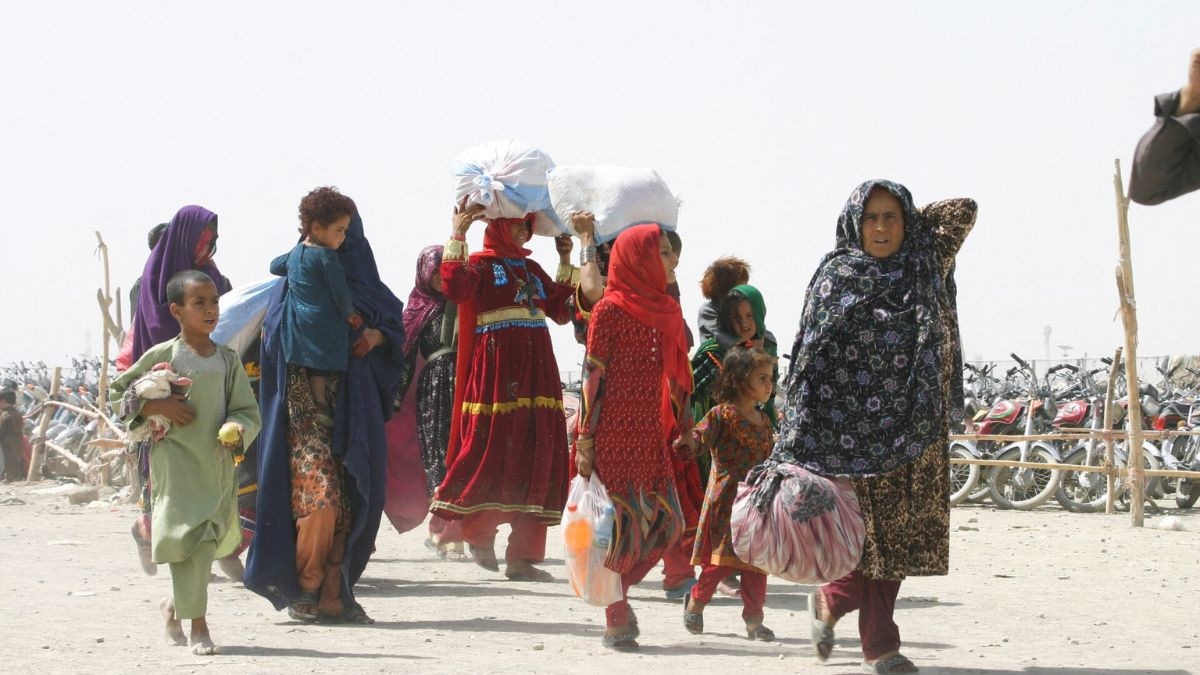Authorities have said several Afghans were arrested on espionage charges and found in possession of bomb- and drone-making manuals, although the claims have not been independently verifiedread more
Iran has stepped up the deportation of Afghan refugees following allegations that undocumented migrants aided Israeli airstrikes on the country last month. The move has resulted in more than 1 million people returning to Afghanistan since 1 June, including at least 627,000 deportees, according to the United Nations.
Authorities have said several Afghans were arrested on espionage charges and found in possession of bomb- and drone-making manuals, although the claims have not been independently verified.
STORY CONTINUES BELOW THIS AD
Tehran has long hosted one of the world’s largest Afghan refugee populations, estimated at between 3 million and 6 million people.
Iran’s semi-official Tasnim news agency, affiliated with the Islamic Revolutionary Guard Corps, reported that arrests were made in connection with the alleged espionage, while state television accused some migrants of helping Israel during a 12-day bombing campaign in June. Israel has not commented on the allegations,
Bloomberg reported.
The deportations have prompted widespread concern among humanitarian organisations. The UN High Commissioner for Refugees (UNHCR) has warned of “devastating consequences” for Afghanistan, already battered by poverty, sanctions and decades of war. Remittances sent by Afghans working in Iran have been a vital lifeline for families back home, and their sudden loss is expected to deepen economic hardship.
Even before the latest crackdown, Afghans in Iran faced strict limits on integration. They are largely excluded from citizenship unless one parent is Iranian, face significant barriers to higher education and formal employment, and are often relegated to low-wage work in construction and other informal sectors. The majority belong to the Hazara minority, a Shia community historically persecuted by the Taliban.
Tehran’s policy marks a sharp reversal from the image it has long cultivated as a refuge for Afghans sharing cultural and religious ties. While Iranian officials insist only undocumented migrants are being expelled, rights groups have documented cases of refugees with valid papers having their documents destroyed by police, rendering them “illegal” before deportation.
STORY CONTINUES BELOW THIS AD
Amnesty International has called the expulsions a violation of the principle of non-refoulement, which prohibits returning people to countries where they risk serious human rights abuses. The organisation says deported women and girls are particularly vulnerable under Taliban rule, where they are barred from most education and employment.
The UN Assistance Mission in Afghanistan has reported widespread abuses against those forcibly returned last year, including torture, arbitrary detention and threats to personal safety. Taliban officials have urged Iran to slow down the deportations, with Prime Minister Mullah Muhammad Hassan calling for a more gradual process.
Despite these appeals, accounts from deportees describe mass round-ups in Iranian cities, transfers to remote detention centres, and bus journeys to the border crossing at Islam Qala. Many return to find themselves homeless and jobless in a country where the economy has collapsed and basic services remain scarce.
Iran’s measures have also fuelled xenophobic violence and harassment of Afghans. While Tehran refers to refugees as “guests”, the current deportation campaign suggests a growing hostility that could permanently reshape the status of one of the world’s largest and most protracted refugee populations.
STORY CONTINUES BELOW THIS AD
